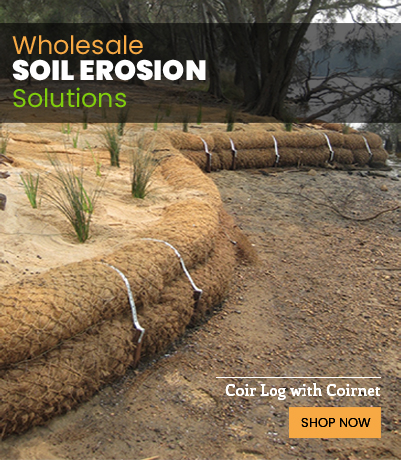If you’ve ever looked at natural coir products, you may have come across coco coir briquettes. But what are coco coir briquettes? How are they different from regular coir? How can they be used? Where do they come from? We’ll tell you about coco coir briquettes and whether or not they’re the right product for you.
What Is Coir?
Coir is a fiber produced from coconut husks. After they have been cleaned and processed, coir fibers have a number of uses. They can be used to help control erosion, to replace straw and synthetic materials in fertilizers, to create pet-friendly garden mats, and much more. Coir is a highly sustainable material, and scientists are continuing to study it to see what else its fibers can be used for.
What Are Coco Coir Briquettes?
Coco coir briquettes are a compressed form of coir and are made from processed fibers and coir dust, a byproduct of the coir fiber industry. They come in a variety of sizes and can be purchased in quantities that meet your needs. Coir is often compressed into briquettes to facilitate easy transportation. When the block is saturated, it can expand up to six times its size.
How Can You Use Coco Coir Briquettes?
To use a coco coir briquette, you first have to soak it. Most manufacturers will provide a ratio that indicates how much water to use, which will depend on the size of the briquette. It’s important to make sure that you’re soaking your briquette in a container that’s large enough to hold the fully expanded coir.
While your coco coir briquette is soaking, you can help the process along by breaking off softer chunks as the coir absorbs the water. You may notice that your water looks muddy or that the coir is not expanding in the way that you’d hoped; when all of the coir is exposed, it will absorb the water, and you’ll be left with the coir fibers. Once the coir is reconstituted, it will remain loose even after it dries.
The Benefits of Coco Coir Briquettes
One of the benefits of coco coir briquettes is that they allow you to purchase and use small amounts of coco coir as needed. By compressing the coir into an easily transportable brick, the manufacturer provides customers with a cost-effective, renewable resource that will last for years.
Plus, since coco coir is nontoxic and biodegradable, unused coir will eventually break down. You can use coco coir as a soil amendment to improve the water retention ability of your soil and provide additional nutrients to your plants, or you can use the loose fibers to insulate your plants during colder months to protect them from sudden temperature shifts.
Due to their compressed size and high yield, coco coir briquettes are also exceptionally useful when you’re working with greenhouse plants or hydroponics setups. They can help sensitive seedlings germinate more effectively than standard soil mixes, and, unlike more traditional soil additives, coco coir briquettes are resistant to bacteria, mold, and fungi.

Leave a Reply
You must be logged in to post a comment.